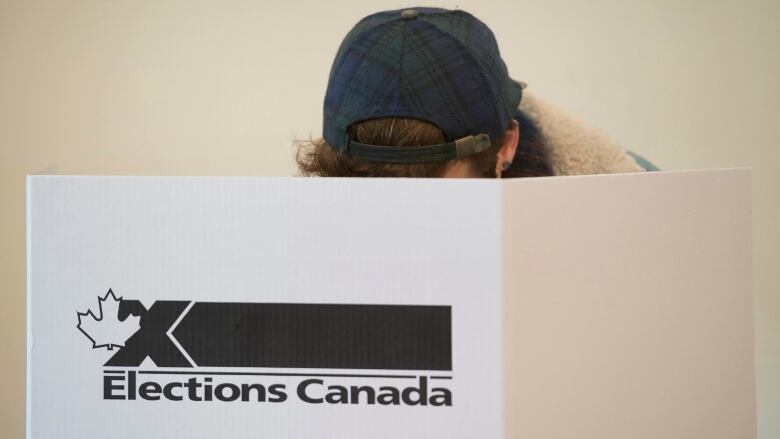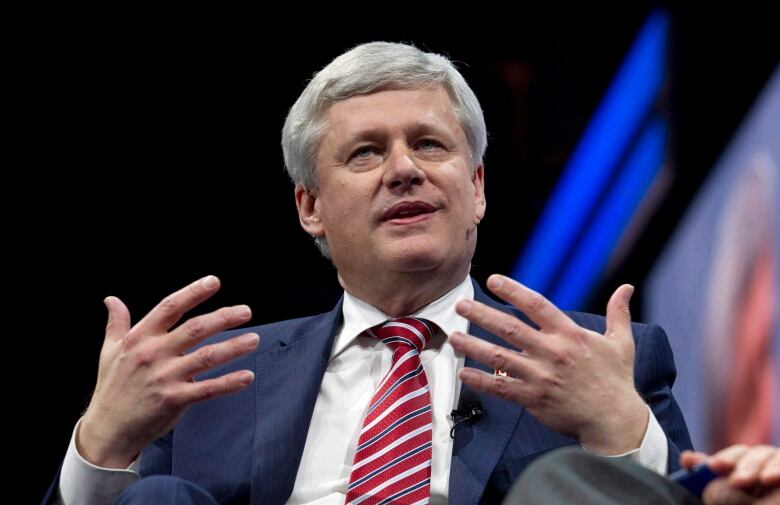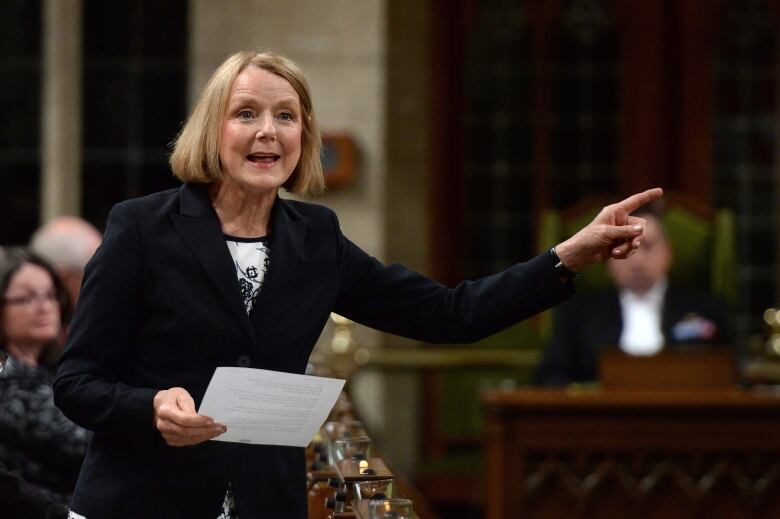Strategic voting may play a role in elections. But will it change the outcome?
'I'm really, really skeptical on how effective it is,' says analyst

For the 2015 federal election,a grassroots groupcalled Leadnowlauncheda strategic votingcampaign called Vote Togetherwith the purpose of booting out Stephen Harper and the Conservative Party.
The ideawasthis: Let's stop vote-splitting among progressive voters byunitingenough people inConservative swing ridings to possibly ignore their preferred partyand rally behind the local candidate who has the best chance of defeating that Conservative.
- Got questions about the election? We've got the information you need. Text "ELECTION" to 22222 for our election toolkit. And if you've still got questions, ask us.
More than 5,000 volunteers canvassed door-to-door, made phone calls, delivered letters and flyers andtexted in those key ridingsall in an effort to get the word out about voting strategically.
So did it work? Yes, according to the group. Not only did Harper and the Conservatives lose, butof Vote Together's11 recommended candidates in targeted ridings, nine won. And in the ridings that weren't targeted, but candidates recommended, 15 of their 18 picks were successful.
ButBryan Breguet isn't so sure that Leadnow, and other campaigns that year that promotedstrategic voting can be given credit for those victories. The electoral analystand forecaster who founded the website TooCloseTooCall, studied the electionresults. In a 2015 article for the Huffington Post, he wrotethat in the ridings where a Liberal candidate was recommended, they did not outperform the projections significantly.
Didn't really have an impact
The NDP candidates saw similar results although they seemed to have enjoyed a boost of about three points. His conclusionstrategic voting organizations didn't really have an impact on the electoral outcome.

"I couldn't really find a statistically significant impact of their organized campaign,"Breguet told CBC News in an interview.
"I have always been mostly skeptical of strategic voting," he said. "I'm skeptical on how many people do it, and I'm really, really skeptical on how effective it is."
Breguet said strategic voting is very limited, and that research suggests maybe 10 to 15 per cent of people consider strategic voting and that less than five per cent in previous Canadian elections actually voted strategically.
"Usually strategic voting is about when your first best choice[candidate] has a low chance of winning And you go for your second best in order to prevent your least favouritecandidate from winning," saidDaniel Rubenson, a political science professor at Ryerson University who has been studying strategic voting.
He saidthepreliminary results revealthat people who are more likely to vote in the first place,would be more likely to vote strategically. Also, women, wealthier, better educated, and to some extent, older people are morelikely to cast their votes strategically
Did play a role
And Rubenson believesstrategic voting did play a role in the results of the 2015 election.
He believes it may have had an impact on certain ridings and given the Liberals a larger majority than projected. For example, in the Toronto riding of Parkdale-High Park,Peggy Nash, a strong, well-known NDP candidate, lost torookie Liberal candidateArif Virani.

"She probably should have won that race. People were kind of voting strategically there," Rubenson said.
"I haven't actually estimatedwhat the results would have looked like withless strategic voting. It's pretty hard to do that, I think. But it definitely played a role."
One of the biggest obstacles to strategic voting, says Elisabeth Gidengil, a political science professor McGill University, is that it's very difficult for voters to overcome partisanship.
"So even though theirparty may be trailing third or fourth inthe polls or in that particular electoral district, people may still want to vote for the party they want, to express their sincere preference.
"It's called expressive voting. People want to express their true preference."
As well, people often overestimate their party's chances of winning, she said.
Avoter'spreferred party may have come third or fourth in the last seriesof elections andstillhas no chance of winning inthat particular riding, "but when we ask people they say 'Oh yes, I think its chances are better than 50-50. I think it has a 60 per cent chance or a 70 per cent chance.'"
"So there's a lot of wishful thinking,"Gidengilsaid.
And even relying on past results isn't necessarily a good indicator on what will happen in a current campaign, or if there will be a surprising surge for one party.
'Quite misleading'
"Sometimes, the past isn't a good guide to the present, and people may also rely on how the party is doing nationallyand that may be quite misleading," she said.
Kathy Brock,a political scientist at Queen's University in Kingston, Ont., said it's a costly strategy for voters, voting for a party in which they do not believe.
"Instead of having your vote registered with a party whose platform you support and showing your vote in the overall average numbers across the country, you're not going to have a real impact," she said.
Parties alsoborrow ideas from each other, she said. If they see that a party is getting increased support because of the popularity of certain ideas, other parties will adopt those ideas, Brock said.
"But when you engage in strategic voting you negate that effect."













_(720p).jpg)


 OFFICIAL HD MUSIC VIDEO.jpg)
.jpg)



























































































